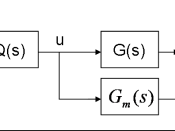Internal control is the systems, policies, procedures, and processes established by the board of directors, senior management, and other key personnel to safeguard an organization's assets, and limit or control the risks, in route to achieving the organization's objectives. The internal control process has five components: control environment; risk assessment; control activities; information and communication; and monitoring. Internal controls are important because they are the foundation to safe and sound accounting. A properly designed and consistently enforced system of operational and financial internal controls helps the board of directors and senior management of an organization safeguard the organization's resources, produce reliable financial reports, and comply with laws and regulations. Effective internal control also reduces the possibility of significant errors and irregularities and assists in their timely detection when they do occur. It is a none delegative responsibility of the board of directors and senior management to establish, maintain, and operate an effective system of internal controls.
The board must ensure that senior management regularly verifies the integrity of the internal controls. Cases like Tyco International Ltd. could have been prevented if the board of directors would have verified the senior management's internal controls. Effective internal control provides the board of directors, accountants and managers reasonable assurance that; An organization's operations are efficient and effective; Recorded transactions are accurate; Financial reporting is reliable; Risk management systems are effective; and the organization complies with laws and regulations, internal policies, and internal procedures. Control systems can help a manager to measure performance, make decisions, evaluate processes, and limit risks. Good internal control can help an organization achieve its objectives and avoid surprises. Effective control systems may detect mistakes caused by personal distraction, carelessness, fatigue, errors in judgment, or unclear instructions in addition to fraud or deliberate noncompliance with policies (like in the case...



Brief background of example cases referred to absent
A good overview - uses Tyco case as an example however doe snot provide a brief overview of the case for unfamiliar reader so examples can be better understood.
0 out of 0 people found this comment useful.